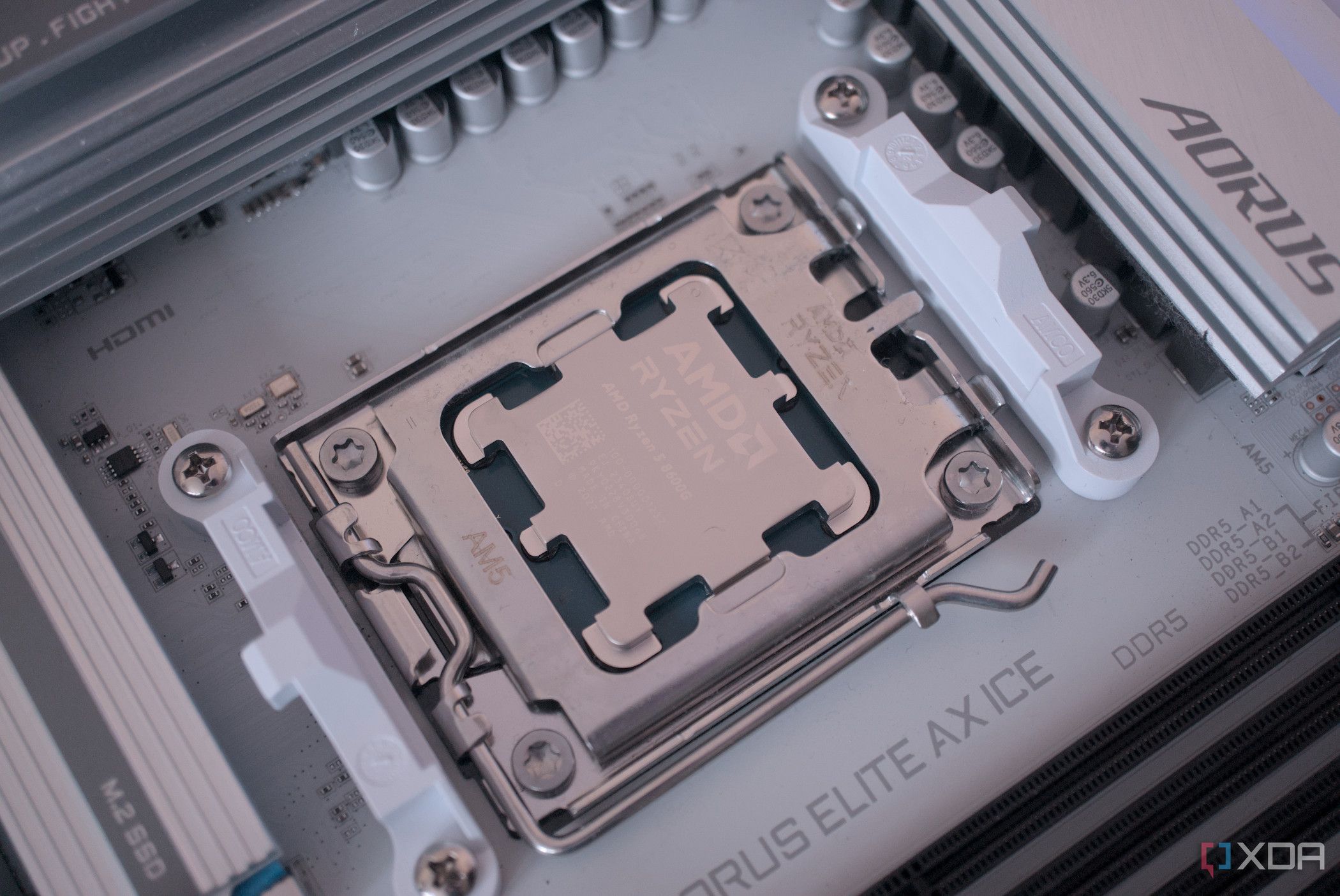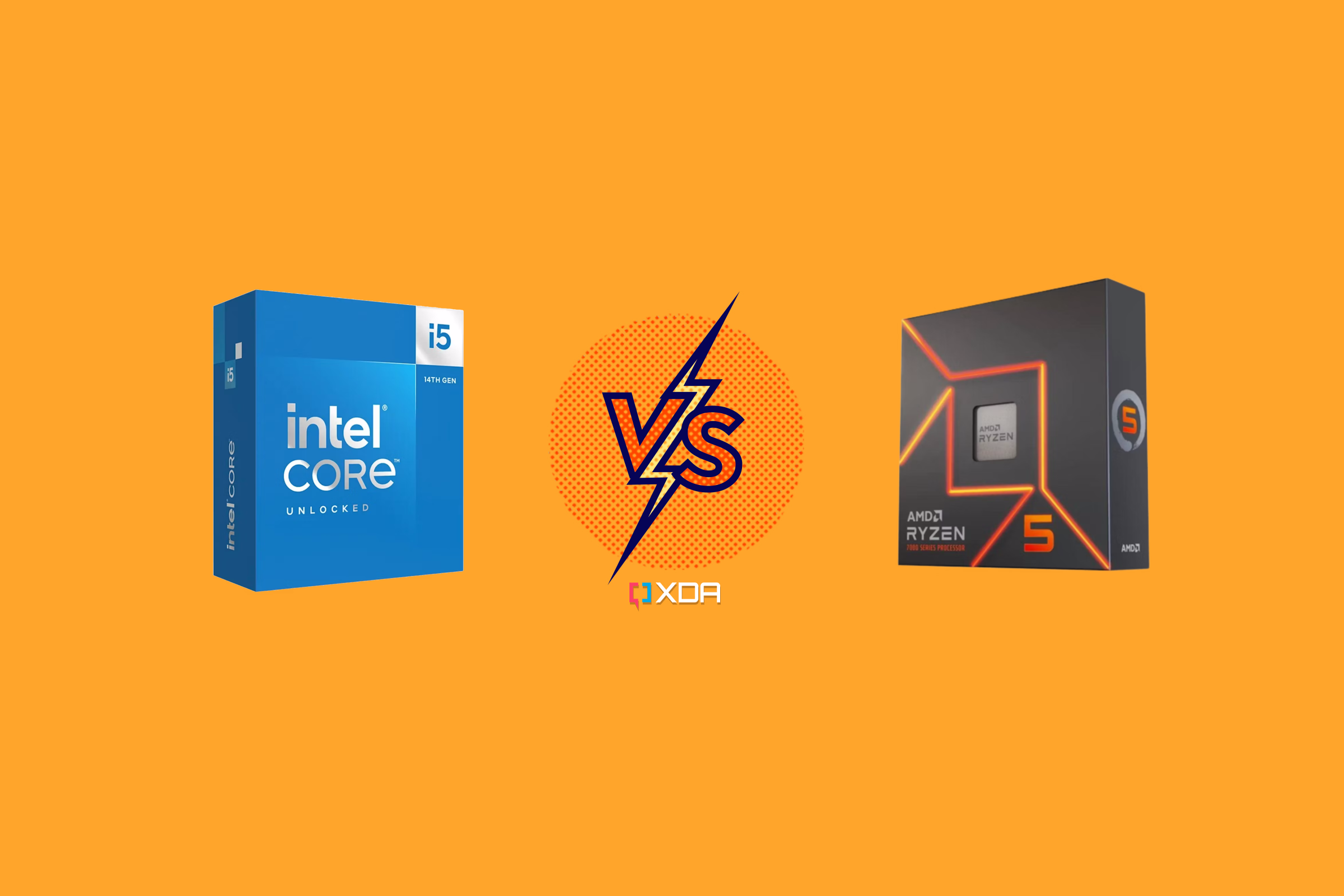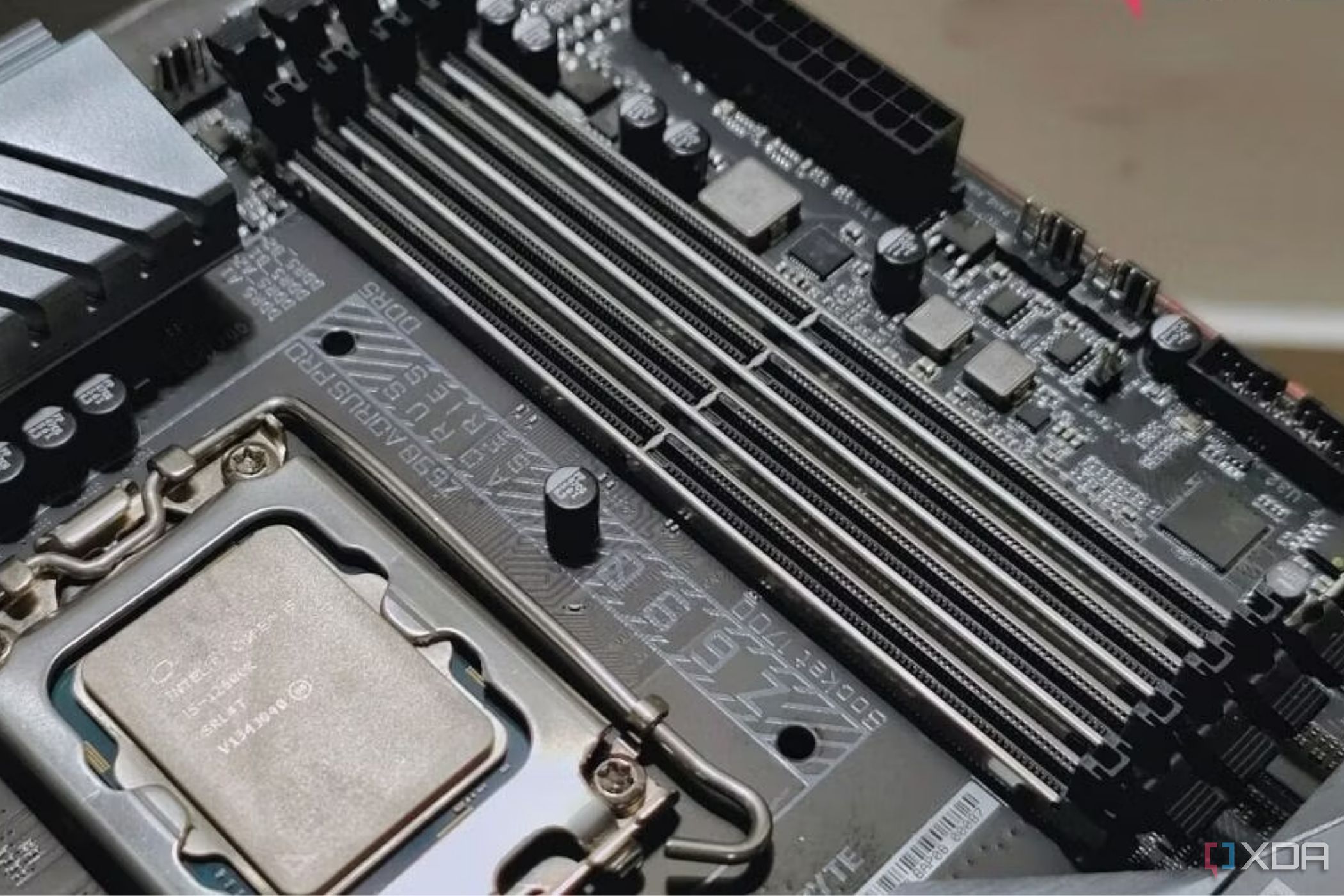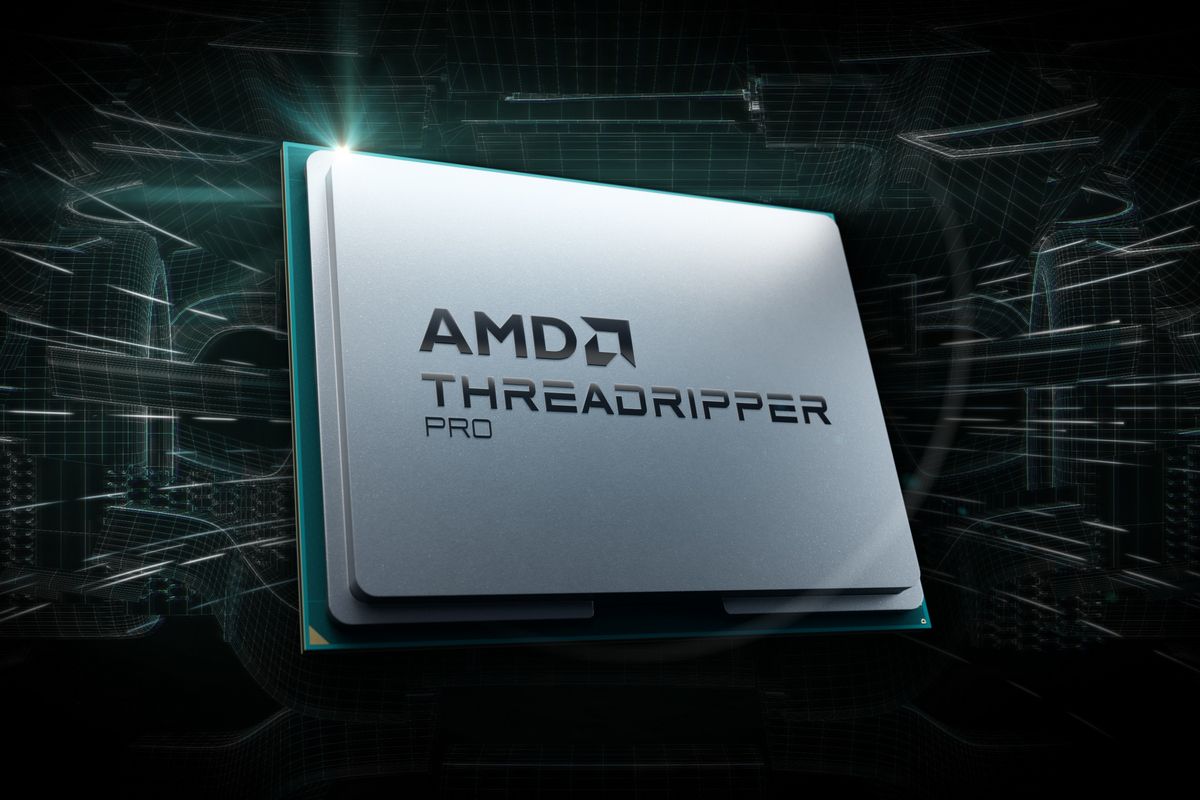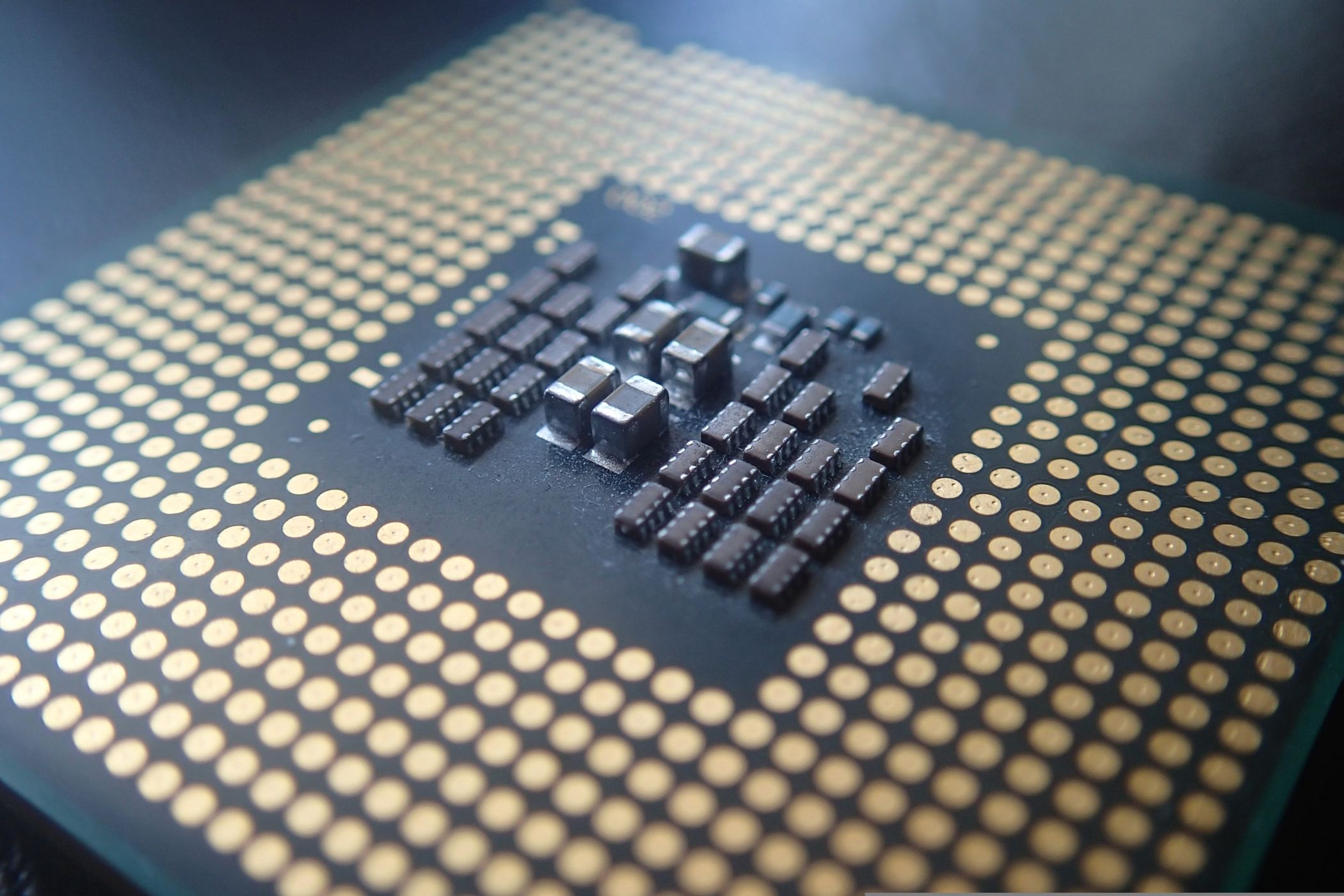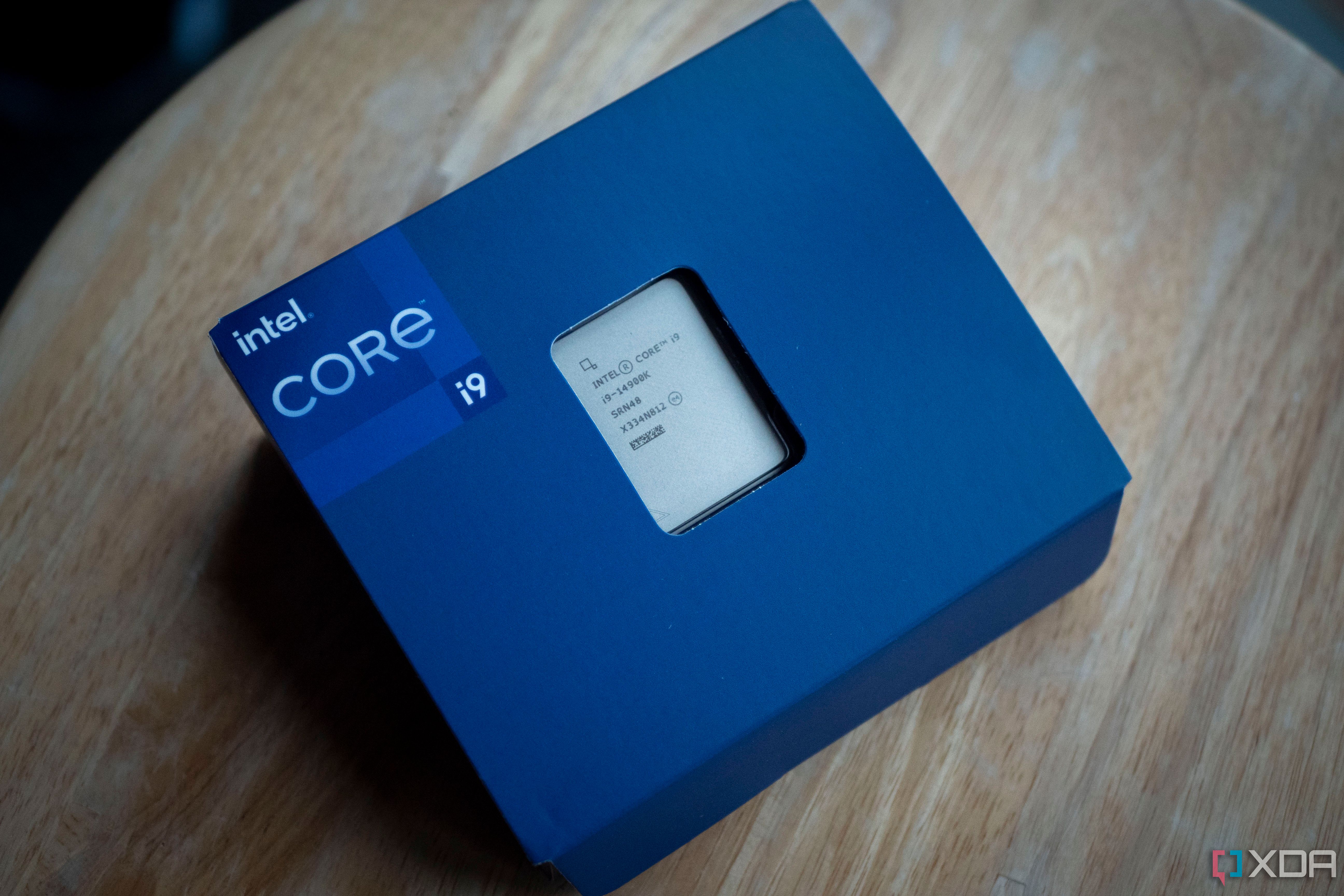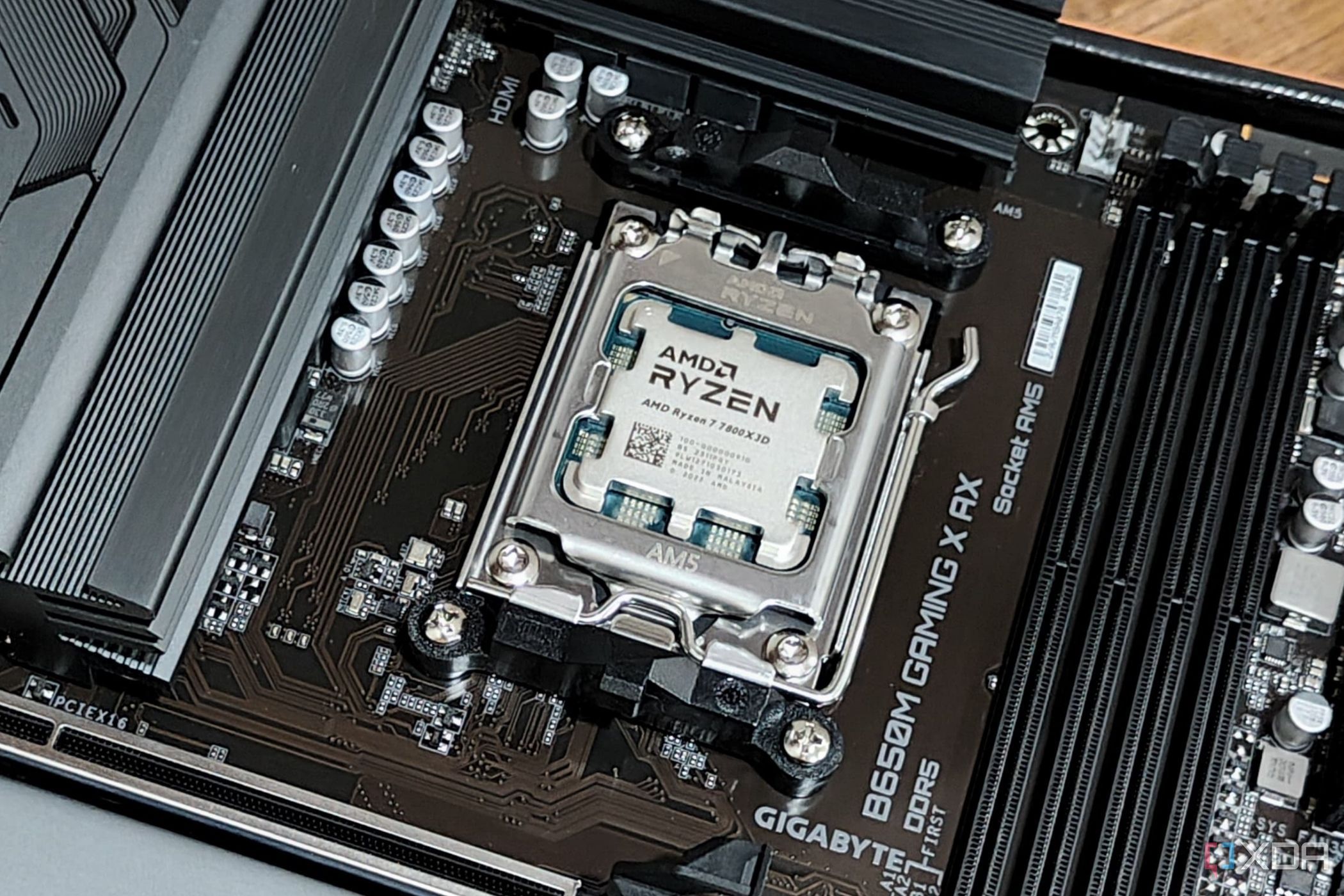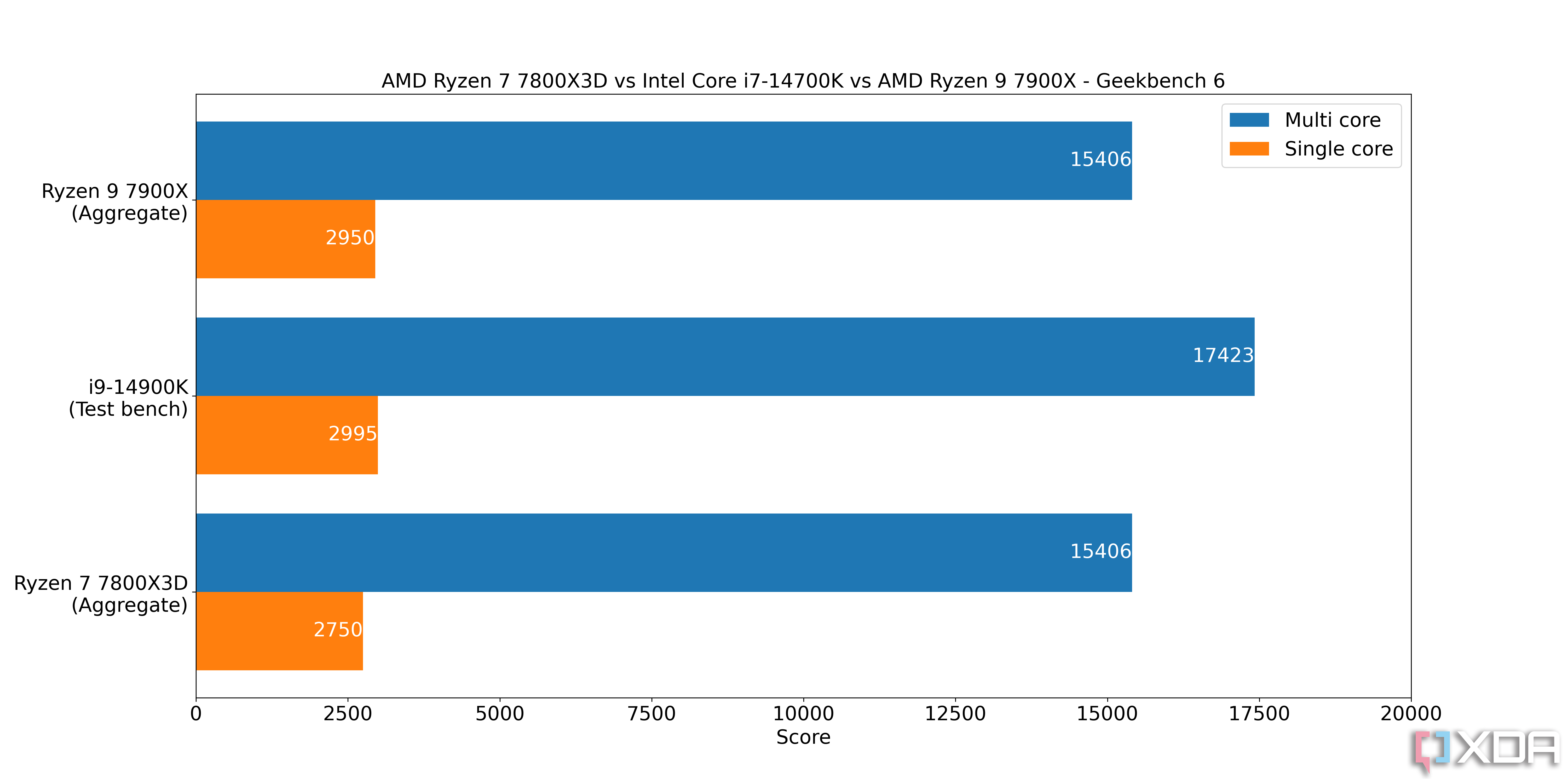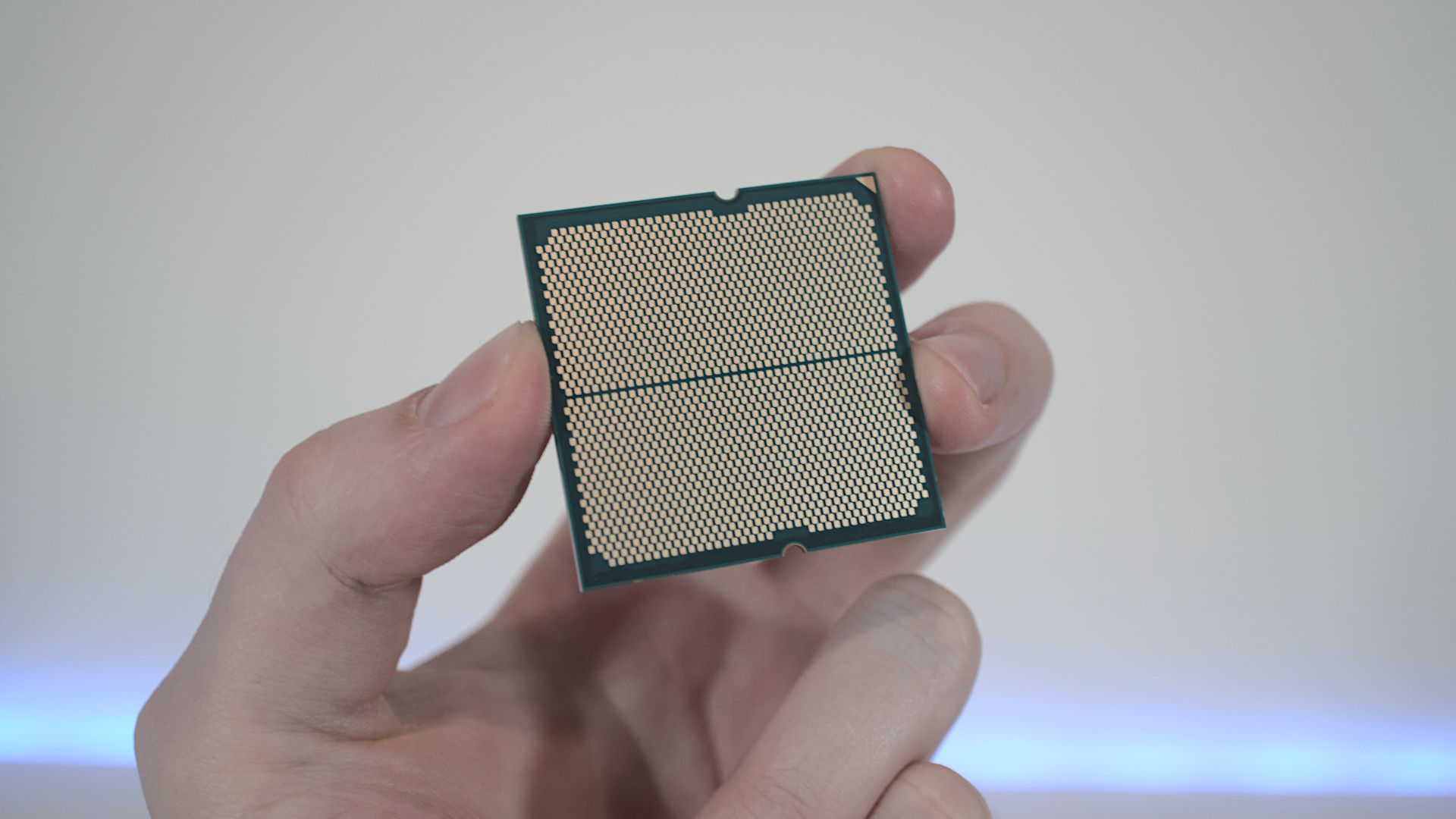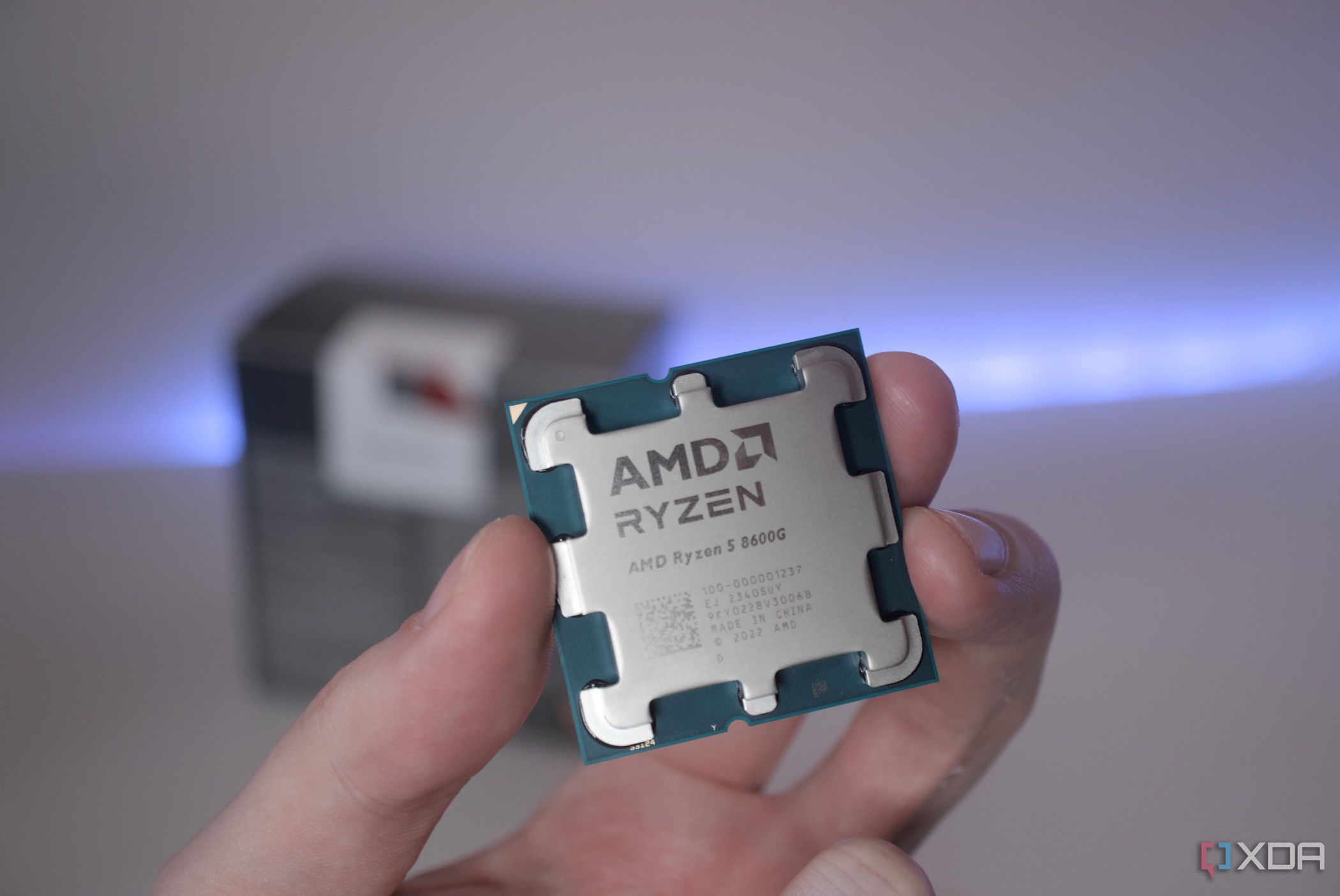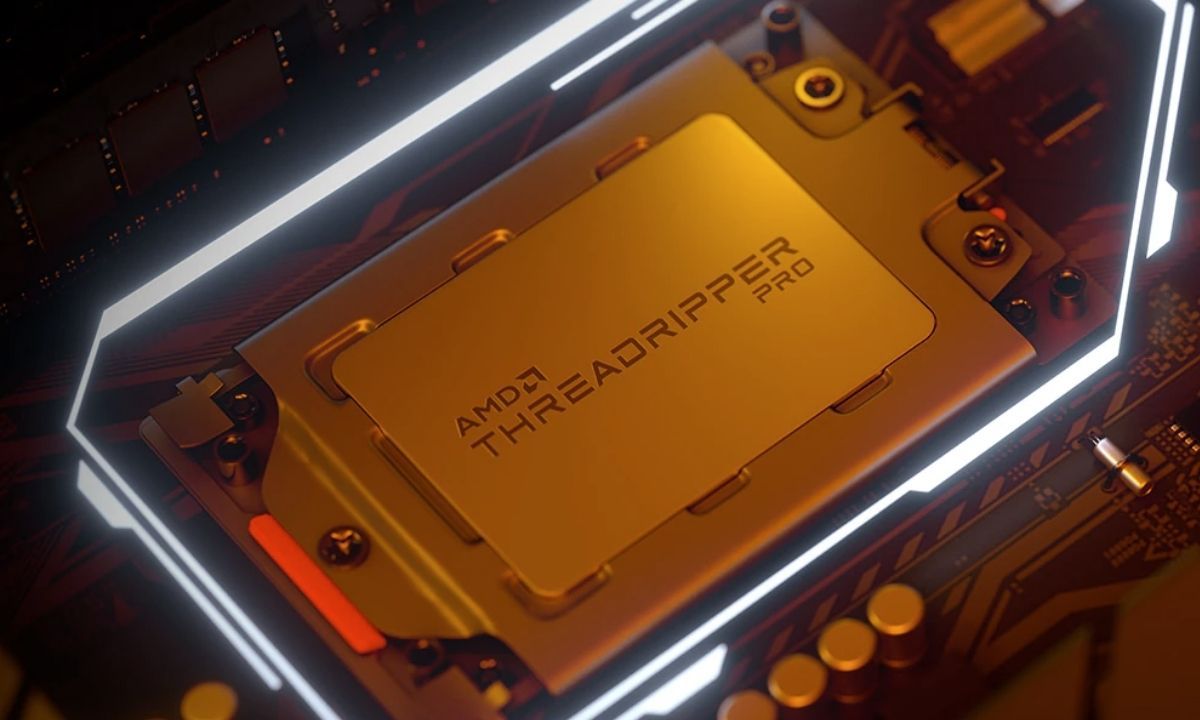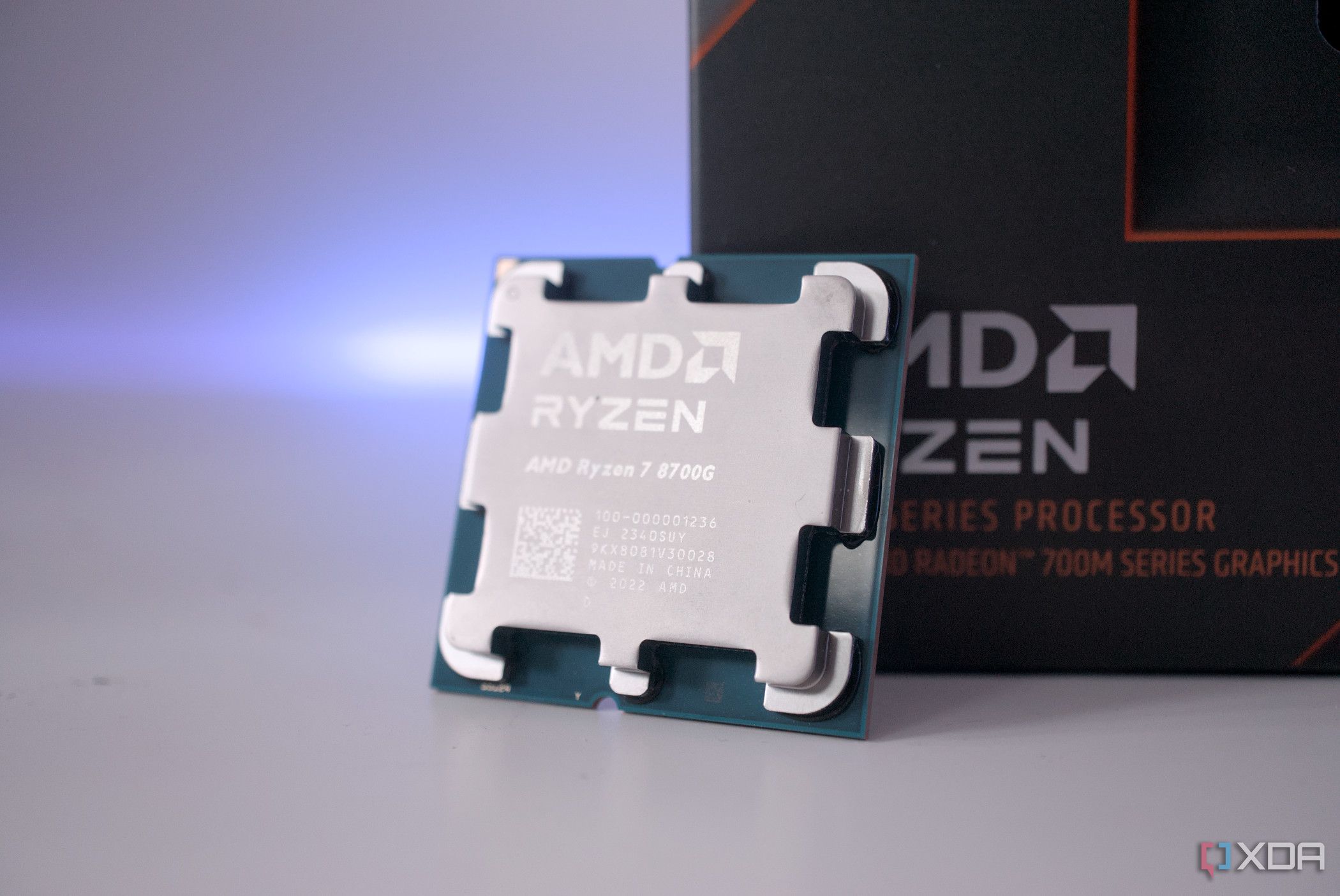Intel and AMD have been competing with each other for decades, relentlessly pushing the computing industry forward with the best CPUs for every kind of user. While Intel was (and still is) the top dog in the data center and PC processor market, AMD has transformed from being an afterthought to competing head-to-head with its longstanding rival.
Today, whether you're looking for the absolute fastest CPU, the CPU with the most cores, or the best gaming CPU for your rig, you'll rarely see any one chipmaker stay on top for very long. While this has helped consumers by bringing some much-needed competition to the market, choosing which CPU should be at the heart of your PC has become harder than ever.
Hence, we looked at the current CPU market with a magnifying glass and made specific recommendations for every budget and every use case.
Intel vs AMD: A bit of history
A David vs. Goliath saga
Before 2017, Intel was so far ahead in the consumer CPU race that AMD was relegated to permanent second place. Despite Team Blue's persistent lack of innovation and gen-on-gen improvements, consumers had no option but to keep buying Intel.
But with the launch of AMD's Ryzen CPUs in 2017, desktop and laptop users saw high core counts, enhanced performance, and affordable prices turn the Intel vs. AMD debate on its head. AMD's whole new Zen architecture radically improved its image in users' minds. Moreover, with a Ryzen CPU, consumers could now make their motherboards last more than just one CPU generation—something that had rarely been offered by Intel.
While Intel remained the bigger player (by far), the Ryzen platform reinvigorated the CPU market and saved AMD from near-certain bankruptcy. Since then, we've seen Intel respond to AMD's efforts in the form of better products of their own — especially the 12th-gen Alder Lake processors with their hybrid architecture.
As it stands today, which CPU manufacturer offers the better product for your specific use case?
Intel 14th Gen & Ryzen 7000 desktop CPUs
Long-lasting AM5 or matured LGA 1700?
In late 2022, Intel and AMD released a slew of new processors — 13th Gen Raptor Lake and Ryzen 7000 Zen 4, respectively. While Intel's 13th-gen CPUs improved upon their previous-gen SKUs, AMD's lineup was for an entirely new platform. AM5 marked the end of the celebrated AM4 platform while becoming DDR5- and PCIe 5.0-only. Intel's subsequent 14th Gen series was simply a minor refresh over the 13th Gen.
|
AMD Ryzen 7000 |
Intel 14th Gen |
|
|---|---|---|
|
Process |
TSMC 5nm |
"Intel 4" 7nm |
|
Cores/Threads |
Up to 16/32 |
Up to 24/32 |
|
Max. Clocks |
Up to 5.7GHz |
Up to 6GHz |
|
TDP (Base/Max) |
Up to 170W |
Up to 253W |
|
Memory Support |
DDR5 |
DDR4/DDR5 |
|
PCIe Support |
PCIe 5.0 |
PCIe 4.0/PCIe 5.0 |
|
Onboard Graphics |
RDNA 2 |
Intel UHD 770 |
Intel's 13th Gen processors had recaptured the performance crown in both gaming and productivity segments. But the best AMD CPUs were neck-and-neck with Team Blue, albeit not accompanied by the excellent value for money they once offered in the previous generations. Today, you can go either way as the 14th Gen and Ryzen 7000 CPUs are tremendously powerful.
You can also consider AMD's X3D lineup of CPUs for the absolute best gaming performance, thanks to their 3D V-Cache. For building a PC on the cheap, even the previous-gen processors are fair game. The Intel 12th Gen and Ryzen 5000 chips offer excellent performance and attractive pricing compared to the latest parts.
AMD Ryzen 7000: Specs & current pricing
|
Ryzen 9 7950X3D |
Ryzen 9 7950X |
Ryzen 9 7900X3D |
Ryzen 9 7900X |
Ryzen 7 7800X3D |
Ryzen 7 7700X |
Ryzen 5 7600X |
|
|
Cores/threads |
16/32 |
16/32 |
12/24 |
12/24 |
8/16 |
8/16 |
6/12 |
|
Base clock |
4.2GHz |
4.5GHz |
4.4GHz |
4.7GHz |
4.2GHz |
4.5GHz |
4.7GHz |
|
Boost clock |
5.7GHz |
5.7GHz |
5.6GHz |
5.6GHz |
5.0GHz |
5.4GHz |
5.3GHz |
|
Cache (L2+L3) |
144MB |
80MB |
140MB |
76MB |
104MB |
40MB |
38MB |
|
TDP |
120W |
170W |
120W |
170W |
120W |
105W |
105W |
|
Price |
$600 |
$525 |
$400 |
$380 |
$370 |
$300 |
$229 |
AMD also offers non-X variants of some of its CPUs, namely the Ryzen 9 7900, Ryzen 7 7700, and Ryzen 5 7600. These cheaper CPUs come with slightly lower clock speeds and lower TDPs, but mostly the same performance.
Ryzen 8000 APUs and Threadripper
Then there are the new Ryzen 8000 APUs based on the Zen 4 architecture, offering decent graphical power without needing a discrete GPU. These APUs are aimed at more modest systems. For those after high-end desktop (HEDT) processors, AMD offers the Threadripper 7000 and Threadripper 7000 PRO CPUs with up to 96 cores for intense, enterprise-grade workloads.
These high-end chips start from $1,500 and should only be considered by enthusiasts or professionals running uber-demanding workloads like 3D rendering, scientific computing, and machine learning. Intel is severely outmatched in this space as its offerings, such as the Core i9-10980XE, are extremely outdated today.
Intel 14th Gen: Specs & current pricing
|
Core i9-14900K |
Core i7-14700K |
Core i5-14600K |
Core i5-14400 |
Core i3-14100 |
|
|---|---|---|---|---|---|
|
Cores/threads |
24(8+16)/32 |
20(8+12)/28 |
14(6+8)/20 |
10(6+4)/16 |
4(4+0),8 |
|
Base clock |
3.2GHz(P-core), 2.4GHz (E-core) |
3.4GHz (P-core), 2.5GHz (E-core) |
3.5GHz (P-core), 2.6GHz (E-core) |
2.5GHz (P-core), 1.8GHz (E-core) |
3.5GHz (P-core) |
|
Boost clock |
6GHz |
5.6GHz |
5.3GHz |
4.7GHz |
4.7GHz |
|
Cache (L2+L3) |
68MB |
61MB |
44MB |
30MB |
17MB |
|
Turbo Power |
253W |
253W |
181W |
148W |
110W |
|
Price |
$550 |
$400 |
$317 |
$230 |
$140 |
Intel's K-series SKUs come with an unlocked multiplier, so you can overclock your CPU. I've not listed Intel's F and T series SKUs in the table above. The F models, such as the Core i5-14400F, are variants of the regular models, just without integrated graphics. The T models are low-powered models designed for business use and mini PCs.
The choice of CPU will depend on your budget, whether you really need all the processing horsepower you're considering, and your preferences regarding power draw, platform longevity, and upgrade cost.
Which CPU should you buy?
Who deserves your money?
Choosing between Intel and AMD is not as simple as it used to be. In 2024, you can rarely go wrong picking either one for your build. But, when it comes down to it, you can always assess the options and narrow down the choice based on your specific use case and budget.
Best enthusiast CPU
If you aren't concerned about money, you'll likely want to get the fastest chip on the market. Currently, the Core i9-14900K and Ryzen 9 7950X would be my only two recommendations for this segment. The Intel flagship is slightly faster than the Ryzen 9 7950X in gaming and productivity workloads while costing virtually the same.
|
Cinebench R23 |
Intel Core i9-14900K |
Intel Core i9-13900K |
AMD Ryzen 9 7950X |
|---|---|---|---|
|
Multi-threaded |
39,174 |
38,510 |
37,327* |
|
Single-threaded |
2,325 |
2,239 |
1,941* |
*Benchmarked in a different testing environment
If you aren't concerned about the extremely high power draw and lack of an upgrade path on the LGA 1700 socket, the Core i9-14900K is the one to get. On the other hand, the Ryzen 9 7950X offers a significantly cooler operation, essentially the same performance, and a healthy upgrade path on the new AM5 socket. The platform cost of building an AM5 PC has drastically decreased over the past year.
Best gaming CPU
When it comes to the best CPU for gaming, there's really no answer to AMD's Ryzen 7 7800X3D. It stands unchallenged by any other CPU on the market (from either camp), even by pricier chips like the Ryzen 9 7950X3D. Owing to its massive 104MB cache (L2+L3) and the single CCD configuration, it tears through any gaming challenge, leaving behind its higher-end siblings and Team Blue competitors.
Still, if you want a gaming and productivity powerhouse, there's a case for pricier chips from both AMD and Intel. The Ryzen 9 7950X3D (for around $200 more) will net you double the cores and threads for a massive boost in video rendering, video editing, and other multi-core workloads.
Alternatively, you can opt for, if productivity is as important to you as gaming, the Core i9-14900K if the productivity chip will provide you with a lot more multi-core horsepower than the Ryzen 7 7800X3D (and even the Ryzen 9 7950X3D). Plus, it's only around 5% slower than the 7800X3D in gaming, at the most. Even the last-gen Core i9-13900K is a great pick in 2024.
For those eyeing more sensibly priced CPUs for your gaming builds, the excellent Core i5-14600K, Ryzen 7 7700X, and even the Ryzen 5 7600X will suffice. They're priced lower than the flagships, offer nearly the same gaming performance, and are much easier to cool.
|
Ryzen 5 7600X |
Ryzen 7 7700X |
Ryzen 9 7900X |
|
|---|---|---|---|
|
Cyberpunk 2077 (FPS) |
137 |
143 |
145 |
|
Factorio (UPS) |
242 |
246 |
247 |
In our tests with an RTX 4070, the more affordable Ryzen 5 7600X performed virtually the same as the 8-core and 12-core Zen 4 chips.
Best budget CPU
I consider "budget CPUs" as costing around or below $200. That might sound a little bit steep, but that's how things are in 2024 if you want to stay current-gen and get decent gaming and productivity performance. The Ryzen 5 7600 would be my pick for the best budget all-round CPU. It's a slightly downclocked variant of the 7600X but offers nearly the same performance, costing around $25 less.
On the Intel side, the Core i5-14400 is priced similarly and performs better in multi-core workloads. But it's significantly slower than the Ryzen 5 7600 in gaming.
Best APU
Although both AMD and Intel offer APUs for cheaper builds that don't have without, AMD easily has the upper hand in this segment. The Ryzen 5 5600G is a good APU for non-AA gaming. Non-AA retails for around $125, which is a much better deal than Intel's less powerful Core i3-13100 or Core i3-12100.
If you can spare more cash for a much stronger APU, the Ryzen 5 8600G is a powerful Zen 4 chip with double the gaming performance of the Ryzen 5 5600G. It'll cost you around $230, but you get a modern chip on the newer AM5 platform and a significant graphical power boost.
Best HEDT CPU
As we saw above, AMD's Threadripper is your only viable option for HEDT CPUs in 2024. The most affordable of these is the 24-core Ryzen Threadripper 7960X. With its incredible 48 threads, 5.3GHz boost clock, and quad-channel DDR5 RAM support, it offers a whole other performance tier than even the Core i9-14900K and the Ryzen 9 7950X.
It also features an impressive 152MB cache (L2+L3) and powerful I/O capabilities to benefit dedicated enthusiasts and professionals.
What's next for the CPU wars?
Intel and AMD are rumored to launch their next-gen CPUs in the second half of 2024. While exact architecture and performance estimates are still only rumors, we expect Intel to ditch the LGA 1700 socket as well as DDR4 memory support with its Arrow Lake processors.
On the AMD side, we'll be seeing the debut of the Zen 5 architecture with a signific, which will significantly improve IPCd. While Zen 5 might not offer much of an upgrade for users with Ryzen 7000 chips, those with AM4 will be hotly anticipating the new release.

